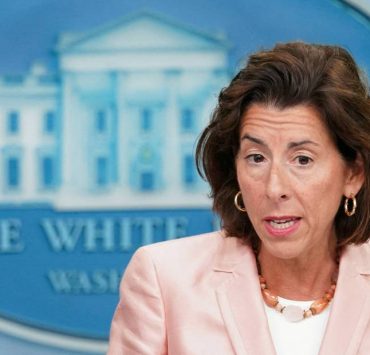Relations amid geopolitical, economic perils
Geopolitical and geoeconomic risks confronting the world and the Indo-Pacific region tell us that more than ever, we need friends who share our values and priorities and who will cooperate with us in fortifying our security—economic, defense, or otherwise.
Through all these we are guided by the vision of a Free and Open Indo-Pacific (FOIP), where everyone abides by established rules and every nation thrives in prosperity, and people enjoy a good quality of life. We struggle to maintain this vision amid the various threats we encounter on a daily basis, and on numerous fronts.
We are heartened by the fact that we continue to nurture relationships with countries that share our values and aspirations.
For example, Australia is a natural partner in our efforts to uphold an open and inclusive rules-based order. During President Marcos’ visit to Australia on Feb. 28-29, he declared that Australia is a lifelong friend with whom we have endured challenges and celebrated victories. The two countries, he said, must reinforce each other’s strengths by protecting peace and opposing actions that denigrate the rule of law. During the President’s state visit, the two countries signed agreements that encompass maritime domain, cyber and critical technology, and competition laws and policies. The memorandum of understanding on enhanced maritime cooperation involves activities in civil maritime security, maritime environment protection, and maritime domain awareness among others. The agreement on cyber and critical technology aims to promote an open and secure cyberspace through conducting capacity building, promoting a secured digital economy, and achieving greater understanding of the application of international law in cyberspace.
Finally, the agreement between the competition commissions of the two countries aims to strengthen economic relations through the sharing of best practices and the conduct of capacity building on matters involving merger regulations, competition laws, and investigative techniques relevant to implementing competition laws.—————-And then there is the triangular cooperation among the Philippines, Japan, and India.This unified effort is crucial in securing the regional and global commons, especially as the rules-based order is threatened by aggressive and coercive actors. This cooperation is central to the three countries’ response to a common threat from the North. Indeed, countries must go beyond bilateral relations and begin to explore triangular partnerships on top of multilateral ones, especially on mutual areas of concern.Japan pioneered the FOIP plan, which is being realized through the promotion and establishment of the rule of law, the freedom of navigation and free trade through maritime domain awareness, economic prosperity and commitment to peace and stability.Indeed, Japan is a natural advocate of cooperation.
Meanwhile, India’s actions in becoming an active player in the defense and security space, along with its hosting of the G20 summit last year, also convey a common desire to foster economic growth within the region. This cooperation in the realm of security is solidified by the Philippines’ purchase of a shore-based anti-ship missile system called the BrahMos system that will be delivered soon by the Indian government. Last week, the Stratbase ADR Institute held a forum entitled “Bridging Borders: Triangular Cooperation for Regional Prosperity between the Philippines, India, and Japan.” In his message, Japanese Deputy Chief of Mission Kenichi Matsuda remarked that cooperation is crucial among the three countries, as frontrunners in defending a democratic liberal order. “Guided by the spirit of co-creation, a triangular partnership between the Philippines, India and Japan can bring about a nexus of sustainable and collaborative efforts that will shape the future of the Indo-Pacific region in the coming years,” he said. H.E. Shambhu Santha Kumaran, ambassador of India in the Philippines, said: “Both India and Japan have prioritized partnerships with the Philippines in the area of maritime security, and I believe that the maritime domain presents a promising opportunity for our three countries to collaborate more actively.”
Our own foreign affairs undersecretary for bilateral relations and Asean affairs, Ma. Theresa Lazaro, said: “The Philippines, being a maritime state, emphasizes the significance of the rules-based international order in addressing the challenges faced by the Indo-Pacific region. Respect for the rules-based order is crucial in maintaining stability.”
We at the Stratbase Institute strongly believe in the importance of reinforcing and strengthening ties across various modes of cooperation that bind across both borders and seas. Only through this can we achieve the peace and stability that we desire within our borders and across the region.
Dindo Manhit is founder and CEO of the Stratbase Group.

















